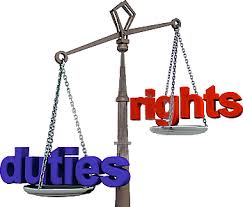 August 2019
August 2019
Condo living includes a commitment to abide by rules and regulations of the community which are established for the benefit of all residents.
An owner or resident gives up the right to make certain decisions affecting anything beyond their suite. Actions within the suite that can impact on external areas are also limited. Condo residents and owners willingly do so in return for numerous advantages.
Owners and residents have the right to expect the property to be properly maintained. Anything external to their suite – grass, maintenance, insurance, snow, common areas – is to be maintained by the corporation. When many of the typical household problems arise there is a management team to assist with resolution.
There is a right and expectation to be treated fairly, and to a timely response to reasonable inquiries. This places limits on how management and directors can act.
Voting is both a primary right and responsibility of condo owners. Voting may be for directors to manage the corporation or relating to other matters as stipulated in governing documents. While there is no obligation for owners to be informed or educate themselves on condo matters, doing so protects them and the corporation from poor choices. Failure to find and elect quality candidates as directors has a negative effect on how the property will be maintained, its value and how individual residents are treated when problems arise.
Buying a condo means accepting compromises. These compromises, per condo documents, are intended to provide a superior lifestyle for members of the community. When problems arise, having a set of rules to refer to and management to enforce them is preferable to conflict among neighbours.
Condo communities are constantly challenged in balancing individual rights. An individual’s right should not result in the creation of a nuisance and another’s individual rights being infringed upon. Access to common areas may prohibit use for political meetings, demonstrations or similar events that may create conflict. Signs on common areas may be prohibited or limited. There may be restrictions on smoking, noise or other activities likely to create conflict. Common sense suggests personal information about suite owners or residents not be disclosed even when they have not paid condo fees or when failing to abide by condo rules.
Residents may request accommodation because of a disability. Granting such reasonable requests, which may or may not be mandated by law, can require providing medical evidence of the individual’s condition and need for the requested accommodation.
Those who choose condo living find that compromise works better than conflict when it comes to managing a home.



